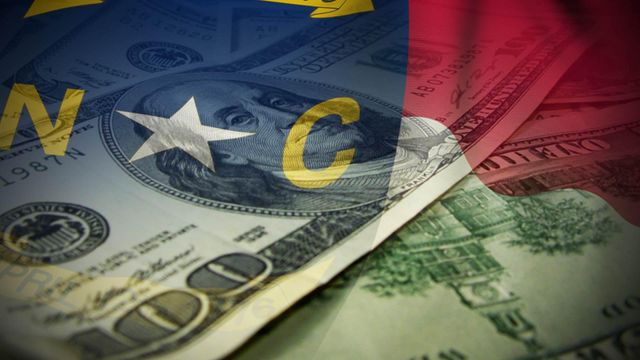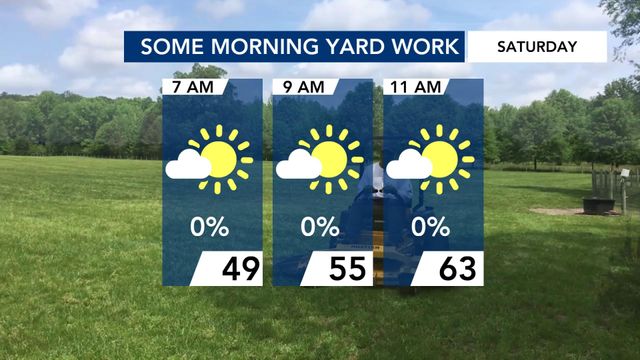Perdue's budget cuts programs, jobs – not spending
Gov. Beverly Perdue's budget proposal, released Tuesday, eliminates more than 20 programs and cuts more than 1,000 state jobs, but includes a 3 percent spending increase over current, reduced levels.
Perdue defended the nearly $21 billion budget, which quickly drew criticism from the right and the left.
"I'm a big girl and can take on a challenge," she said at a news conference announcing her proposal.
The two-year budget plan relies on targeted tax increases to deal with the state's worst fiscal conditions in generations. The current budget is $2.2 billion in the hole for the 2008-09 year, which ends in June, and analysts expect revenue to fall by another $3.4 billion in the coming fiscal year.
A $1-per-pack increase in North Carolina's cigarette tax and an extra 5 percent surcharge on alcohol to raise an additional $508 million, along with quadrupling professional licensing fees to $200 each, would generate another $27 million, according to her projections.
Perdue said she didn't want to throw too many tax increases into the mix because the recession has left North Carolina with record unemployment and has families cutting back as much as possible.
"I would be very reluctant, if I were anyone in North Carolina with times as tight as they are, to talk about an increase in corporate or personal income tax or sales tax," she said.
Republican leaders and the left-leaning N.C. Budget & Tax Center pounced on the proposed tax increases, saying they were uncalled for in the current economy.
"To increase taxes and create an entirely new tax, as she proposes, will further damage our economy and cost jobs," Senate Minority Leader Phil Berger said. "Elected officials should be concerned about protecting the budgets of North Carolina’s families. This budget protects entrenched political and special interests."
"Gov. Perdue’s new budget breaks previous promises to abstain from raising taxes and does not protect core priorities of state government," said Linda Daves, chairwoman of the state Republican Party. "Not only does Gov. Perdue propose raising taxes, as well as creating new taxes, she is balancing the budget by placing the burden on some our state’s taxpayers least able to afford to pay more in difficult times."
"The reason we have a revenue problem is that people don't have money," House Minority Leader Paul Stam said. "This is the worst year to raise tax rates."
"There is no doubt that cigarette tax and alcohol tax increases will be felt on a much more heavily or deeply level on low- and middle-income taxpayers than on higher-income taxpayers," said Elaine Mejia, director of the Budget & Tax Center. She said she hopes lawmakers look at putting a heavier burden on wealthy North Carolinians.
Perdue proposed cutting $1.3 billion from most state agencies, but spending increases in education and some other initiatives more than offset that.
Overall, the plan would cut spending by 2 percent from the 2008-09 budget lawmakers approved last year. Because subsequent cuts have reduced that budget by almost $1 billion, however, Perdue's proposal would increase spending by about 3 percent over current levels.
Republicans also criticized the proposal for lacking deeper cuts, as well as the fact that Perdue is relying on about $1.7 billion in federal stimulus money to help close the revenue gap. She also includes $1.2 billion in federal money to help with the 2010-11 budget.
"The substantial use of one-time money to cover recurring obligations does not deal with fiscal matters in a responsible way. It puts off dealing with years of overspending by Democrats, which is a substantial cause of the current problem,” said Berger, R-Rockingham.
Perdue's proposal would cut state spending on public schools by 3.2 percent, but she plans to supplement that with stimulus money so that schools would net a $350 million increase in spending.
Higher education also would benefit under her proposal. Community colleges would see a 6.4 percent increase, while the University of North Carolina system's budget would go up by 4.8 percent.
"North Carolina leadership must position our people across the state to participate through technology in a global economy, and right now, we are not prepared to do that," Perdue said.
UNC President Erskine Bowles contended Perdue's proposal cuts the university system's budget by 6.5 percent, with most of the cuts permanent. That could result in hundreds of job losses, he said.
Education advocates said they support the concentration on the classroom, but they worried about what happens when the federal money runs dry.
"Our question is, will there be money beyond two years because this is a recurring cut?" said Bill McNeal, executive director of the North Carolina Association of School Administrators.
In addition to education spending, she said creating and keeping jobs in the state was her primary consideration in drafting the budget.
"The No. 1 priority – and you've heard me say this since the day I was sworn in – is to create jobs," she said. "My budget contains key investments around infrastructure, assistance to small business and work force development."
Two state departments that have come under fire in recent months would see their budgets cut under her proposal.
The Department of Correction, which has been criticized for poor supervision of people on probation, would lose $68 million and have 527 positions cut. Most of the cuts would come from closing six minimum-security prisons and a prison hospital.
The Division of Community Corrections, which includes probation offices, would get an extra $13 million next year to hire dozens of officers and supervisors and provide them with additional training.
Meanwhile, the state mental health system, which has been cited for patient abuse and neglect, would lose 47 jobs and $17 million overall.
The programs slated for elimination would save the state about $37 million.
More than 1,000 state jobs, some of which are vacant, also would be cut under the governor's budget.
Many lawmakers said they were more interested in furloughs or pay cuts for state employees.
"Everything is on the table. I like the furlough personally better, but we'll see how the caucus feels on the whole," House Majority Leader Hugh Holliman said.
Perdue also plans to freeze longevity pay and state worker salaries. Teachers would see an average 1.8 percent pay increase, however, because salary steps are built into their contracts.
"It's been hard. I mean, the choices are hard," she said.
Despite her concern about the tax increases, Mejia said she thought Perdue did her best to balance spending cuts with increased revenue.
"We're lucky to have the federal government as more of a partner than usual ... but she also raised revenues and she also cut spending," she said. "So, I think she took a balanced approach."
The higher cigarette tax, if approved, would make North Carolina's rate the 20th-highest in the country, compared with its current rank of 45th, according to Perdue's budget. The cigarette tax was just 5 cents a pack until the legislature agreed in 2005 to raise it over two years.
The state's liquor tax of almost $2 per bottle is the eighth-highest in the country. Wine is taxed at about 16 cents per bottle, while the beer tax is about 26 cents per six-pack.
"This is an important move for health care in North Carolina," Perdue said. "Those of use who choose to use those two products can afford to suck (it) up."
Some local smokers and retailers who sell cigarettes and alcohol disagreed with the governor's assessment.
"It's going to hurt not only us, it's going to hurt the 'Joe Sixpack' that goes to work every day and just grabs a pack of smokes," said Steve Byers, who owns the Grocery Boy Jr. convenience store.
"I think I will stop smoking if I have to pay $4 a pack for cigarettes instead of $3," Pamela Battle said.
"My preference is, at this particular time, we might not be taxing people more for anything, but it's something we have got to look at, given the times we are in," said Sen. Richard Stevens, R-Wake.
North Carolina remains the country's leading flue-cured tobacco state, and its revenues and jobs helped build the state for much of the 20th century. But reduced demand for the leaf and changing views on smoking and health have led the Legislature to pass more smoking restrictions.
The budget proposal also calls for exempting the first $25,000 of net income from state tax for businesses with profits of less than $100,000 and the first $15,000 for business making between $100,000 and $200,000.
Perdue also would seek a "caregiver tax credit" to benefit people who take care of aging citizens, along with the creation of a sales tax holiday for people who purchase equipment that helps conserve water, according to the budget document.











